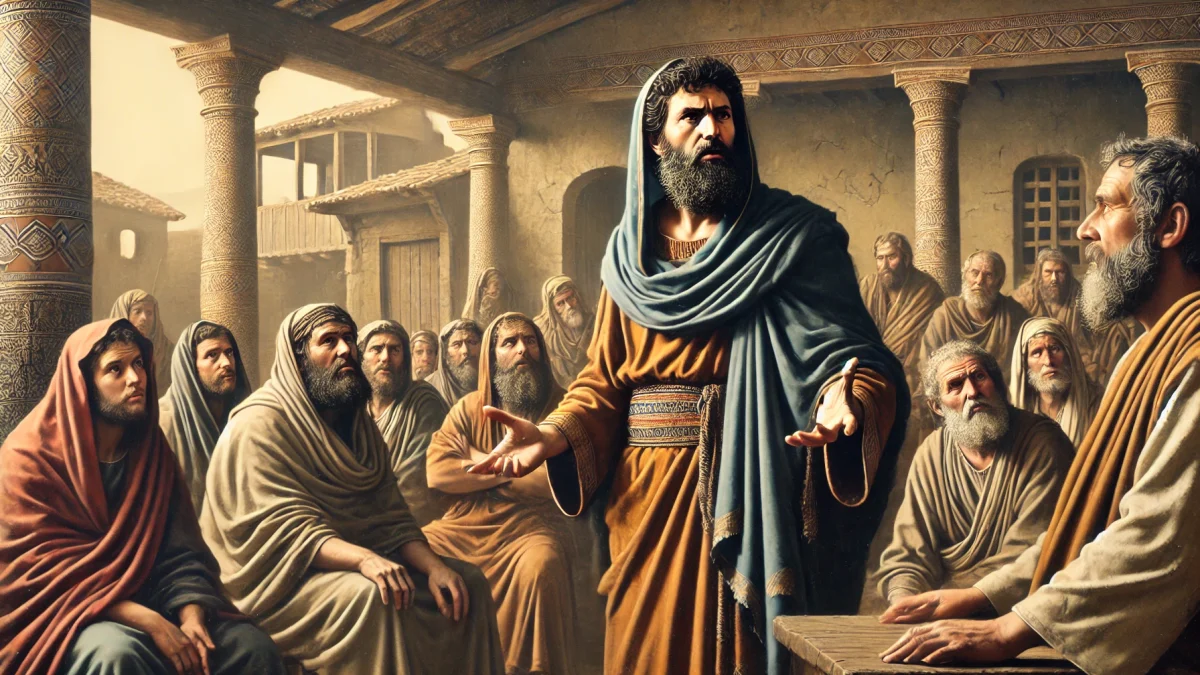The Bible is filled with stories of individuals who either served as positive role models or cautionary figures. One of the less celebrated yet intriguing characters in the New Testament is Diotrephes, whose actions and behavior serve as a warning to believers. This article explores the life, character, and legacy of Diotrephes as revealed in the Bible, shedding light on his troublemaking role within the early Christian church.
Diotrephes in Context
Diotrephes is mentioned only briefly in the New Testament, specifically in the third epistle of John (3 John 9-10). In this letter, the Apostle John addresses the issues occurring in the early church, with Diotrephes at the center of the controversy. John’s epistle provides insight into the relational and leadership challenges that emerged in these fledgling Christian communities.

The name “Diotrephes” means “nourished by Jupiter,” indicating that he may have come from a pagan background before joining the Christian faith. Despite his brief mention, his behavior reveals much about the type of character that can disrupt spiritual harmony.
The Troublemaking Traits of Diotrephes
- Love of Preeminence Diotrephes is explicitly described as someone “who loves to be first” (3 John 9). His desire for power and recognition positioned him as an obstacle to unity within the church. This self-centered ambition is a stark contrast to the humility exemplified by Christ, who taught that “the greatest among you shall be your servant” (Matthew 23:11).
- Rejection of Authority Another hallmark of Diotrephes’ behavior was his refusal to accept the authority of the Apostle John. John’s apostolic authority was foundational to the early church, yet Diotrephes resisted it, choosing instead to assert his own dominance. This rejection of rightful authority highlights the dangers of pride and insubordination within spiritual leadership.
- Slanderous Speech John also accuses Diotrephes of spreading malicious gossip against him and other church leaders. This destructive behavior undermined trust and sowed discord among believers. Such actions directly contradict biblical teachings about the importance of edifying speech and unity in the body of Christ (Ephesians 4:29-32).
- Exclusionary Practices Diotrephes went so far as to refuse hospitality to other believers and even attempted to excommunicate those who opposed him. In the early church, hospitality was a vital expression of faith and community. Diotrephes’ actions were not only inhospitable but divisive, further damaging the church’s mission and witness.
Lessons from Diotrephes’ Example
The story of Diotrephes serves as a timeless warning to Christian leaders and followers alike. His actions reveal the dangers of selfish ambition, rejection of authority, and a divisive spirit. For modern believers, this cautionary tale underscores several important lessons:
- Humility in Leadership True Christian leadership is marked by humility and a willingness to serve others. Leaders are called to emulate Christ, who demonstrated servant-hearted leadership (John 13:12-17).
- Submission to Authority Respecting and submitting to godly authority is crucial for maintaining order and unity within the church. Even when disagreements arise, they should be handled with grace and a spirit of reconciliation.
- Guarding Against Gossip Words hold immense power. Gossip and slander not only harm individuals but also erode trust within the community. Believers are called to use their words to build up rather than tear down (Proverbs 16:28).
- Fostering Unity Hospitality and inclusion are hallmarks of a healthy Christian community. Leaders and members alike must prioritize unity and collaboration to reflect the love of Christ to the world.
Conclusion
Although Diotrephes plays a minor role in the biblical narrative, his actions provide a major lesson for the church. His love of preeminence, rejection of authority, and divisive behavior stand in stark contrast to the humility, submission, and unity that Christ calls His followers to embody.
By reflecting on the example of Diotrephes, believers can examine their own hearts and actions to ensure they contribute to, rather than hinder, the mission of the church. His story reminds us that even minor characters in the Bible can teach profound truths and guide us toward a deeper understanding of faithful living.






Leave a Reply